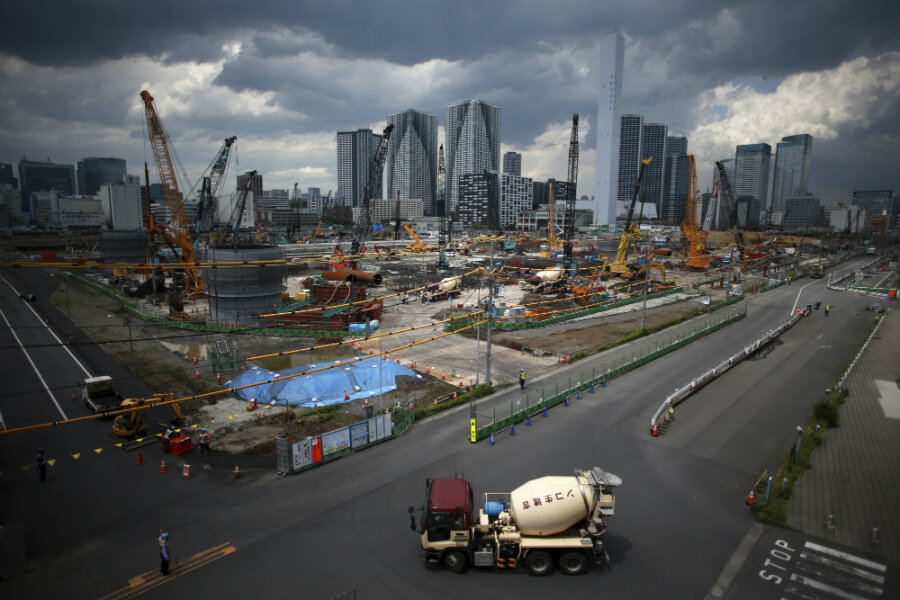Tokyo Olympics doubles in price from initial estimate
Loading...
| Tokyo
Taxpayers beware: The cost of hosting an Olympics is likely to be far more than advertised.
The price tag on the 2020 Tokyo Olympics has ballooned to nearly twice the initial estimate, even after a major cost-cutting effort.
A major reason is that cities exclude large amounts of associated costs when they submit a bid to host the Olympics.
"Those numbers in the bidding file are almost fiction," said Shinichi Ueyama, a Japanese public policy expert who led a Tokyo government investigation into the Olympics' cost.
The bid figures include only the core components such as the main facilities so that the bids are easier to compare. Building design, security measures, transportation, and other costs are largely excluded.
It is common practice, but taxpayers may not be aware that the bid figures are incomplete, and the actual cost will end up far higher.
Tokyo 2020 organizers said this week that the estimated cost is now 1.4 trillion yen ($12.6 billion). When Tokyo was awarded the Olympics in September 2013, the total was 730 billion yen ($6.6 billion).
The cost of the 2012 London Olympics tripled from a bid estimate of $6.5 billion to $19 billion.
"Many advanced nations are now increasingly aware of the pattern and staying away from the Olympics," said Mr. Ueyama, a professor at Keio University in Tokyo. "If you take a survey in any democratic country, people would refuse to have their tax money spent on costly sports events."
Rising construction costs in Japan also contributed to the increase in in costs for Tokyo, as well as the addition of five new sports after Tokyo won the bid. Much of the increase, though, was for non-construction costs.
The cost would likely be even higher if it were not for growing IOC concern about host city costs.
The $51 billion price tag for the 2014 Winter Games in Sochi, Russia, led numerous cities to drop out of bidding for the 2022 and 2024 Olympics.
Thomas Bach, who took over as IOC president in 2013, has driven a cost-cutting agenda to entice cities to bid for future Games and minimize damage to the Olympic brand.
The IOC is encouraging the use of existing and temporary facilities instead of building new ones. Tokyo organizers have moved several events outside the city to do that.
Tokyo Gov. Yuriko Koike launched a further cost-cutting push after taking office last summer as one estimate for the 2020 Games rose to more than 3 trillion yen ($27 billion).
The effort delayed for six months an agreement on how the various parties will share the costs.
Under a cost-allocation agreement announced Wednesday, the city of Tokyo and the Tokyo 2020 organizing committee will shoulder 600 billion yen ($5.4 billion) each. The central government will contribute 150 billion yen ($1.4 billion).
A remaining 35 billion yen ($315 million) still needs to be sorted out between Tokyo and neighboring municipalities that will host some of the competitions.
Bidders almost always present the lowest estimate to promote an image that they are taking a conservative approach, according to a report issued last fall by the Tokyo investigation panel.
The organizing committee will eventually disband, and under the terms of the host city agreement, Tokyo taxpayers will be on the hook for any shortfall left behind.







